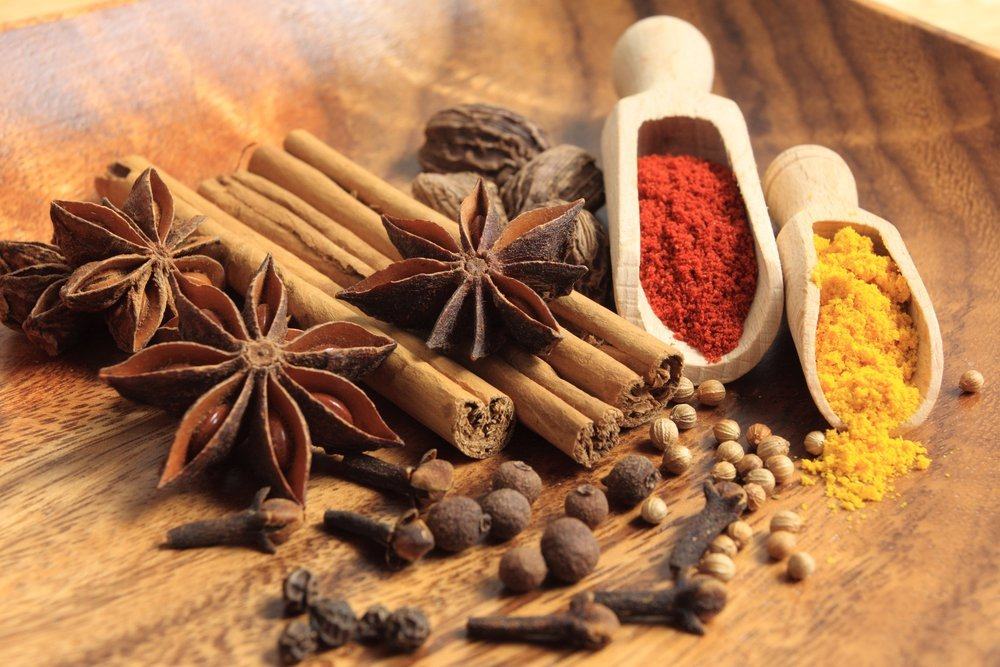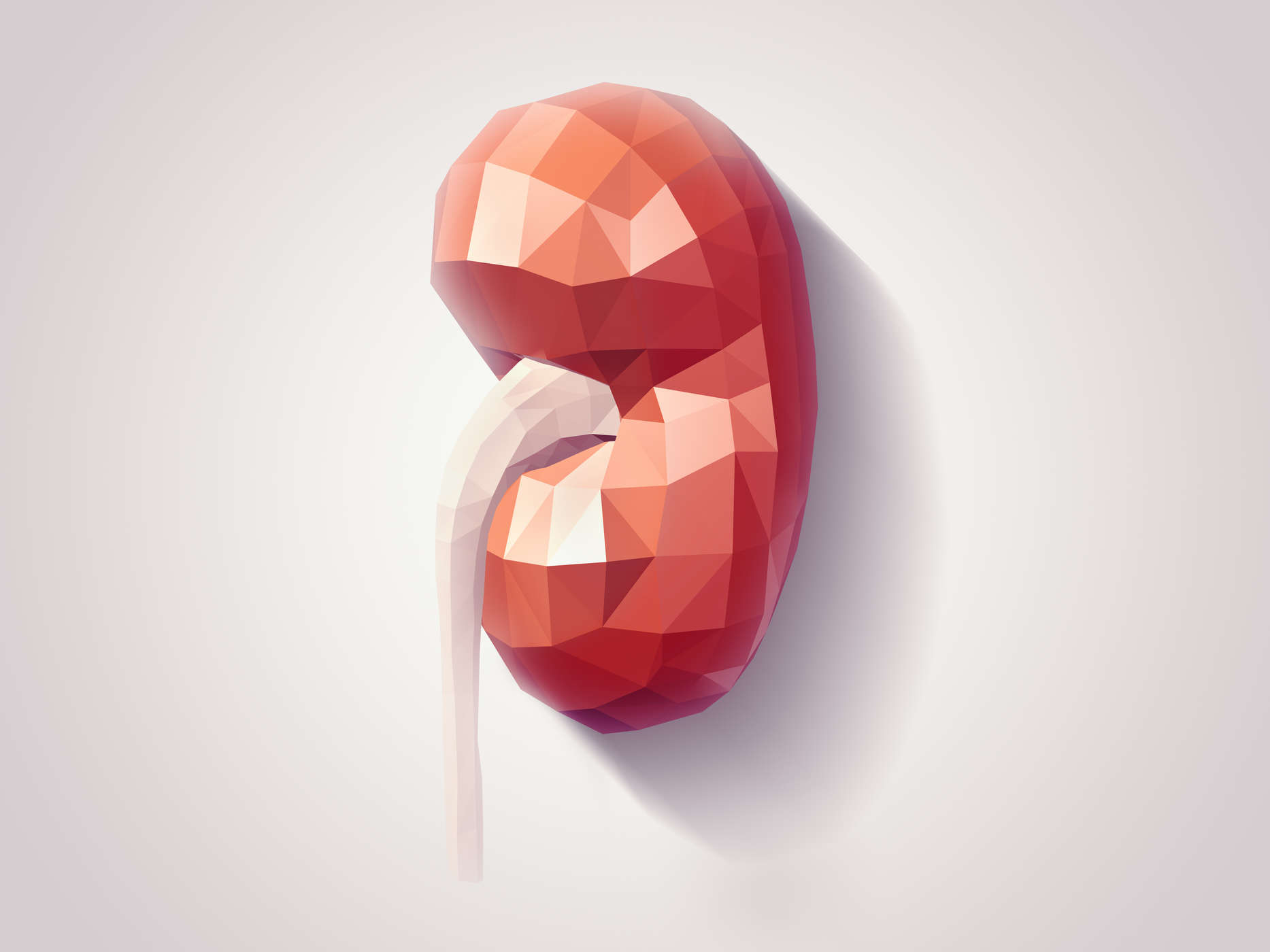Contents:
- Medical Video: Top 100 Best Healing Medicinal Herbs, Spices And Plants Names, Health Benefits And Medicinal Uses
- 1. Cinnamon (cinnamon)
- 2. Turmeric
- 3. Ginger
- 4. Cloves
- 5. Nutmeg
Medical Video: Top 100 Best Healing Medicinal Herbs, Spices And Plants Names, Health Benefits And Medicinal Uses
Indonesia is known as a country that is rich in spices. It is known that spice production in Indonesia in 2013 reached around 310 tons consisting of commodities of cloves, pepper, nutmeg, cinnamon, and vanilla. Not only useful for adding flavor to food, it turns out the use of spices in food or drinks has a good impact on health. What are the benefits?
1. Cinnamon (cinnamon)
Cinnamon is one of the spices that is very often used for flavor enhancers of various dishes and drinks. Cinnamon contains cinnamaldehyde which is used for medical purposes as an anti-bacterial or anti-fungal drug. In addition, cinnamon also contains antioxidants which can help treat inflammation in the body and reduce levels of bad cholesterol and triglycerides in the blood. From research that looked at the relationship between consumption of cinnamon and heart health, it was found that consuming cinnamon at least 120 mg per day can raise good cholesterol levels in the blood.
A study states that cinnamon is good for diabetics because it can reduce blood sugar levels. The study proves that diabetics who consume cinnamon have decreased fasting blood sugar by 10 to 29 percent. The size of cinnamon that is good for daily consumption is as much as half to two tablespoons or about 1 to 6 grams. Cinnamon can be a flavor enhancer in the food and drink you consume.
2. Turmeric
Turmeric is a type of rhizome plant with a distinctive yellow color. Because of this thick yellow color, turmeric is often used as a coloring agent for various foods. Antioxidants also possessed by turmeric can protect the body from the effects of free radicals and reduce the risk of getting cancer. In addition, turmeric also contains anti-inflammatory substances, namely substances that reduce histamine levels and increase natural cortisone in the body. This can help the body deal with inflammation and infections in the body.
This yellow rhizome can also maintain liver health, consuming turmeric can help fat metabolism and increase the release of bilirubin by the bile gland. This is good for preventing gallstones and can help treat people with gallstones. Turmeric has a good impact on heart health, a study conducted on rabbits with atherosclerosis showed that consumption of turmeric in rabbits can reduce cholesterol levels in the blood.
3. Ginger
Ginger is often used as an alternative medicine to treat various diseases. Many studies have proven that ginger is good for treating symptoms of nausea, including symptoms of nausea that appears in pregnant women, cancer patients who are undergoing chemotherapy, and seasickness. Ginger is also useful as an anti-inflammatory and can reduce the pain that appears on the body. A study shows that ginger has the same role as aspirin when inflammation occurs in the body. Even in other studies it was mentioned that combining ginger, cinnamon, and sesame oil is useful for reducing muscle pain and tension, just like aspirin or ibuprofen is used to reduce pain.
4. Cloves
Cloves are dried flower stalks that come from tree families Myrtaceae. Many say that cloves have various health benefits, but there is still little research on the benefits of cloves for health. Some say that cloves are useful for treating tooth and gum pain, even sores in the mouth. Based on research reported in the Journal of Dentistry, it shows that cloves can be a substitute for painkillers, such as benzocaine. In addition, the Journal of Medical Microbiology states that cloves can inhibit fungal growth. In fact, several other studies say cloves can prevent premature ejaculation in men.
5. Nutmeg
Nutmeg, which is often used as an additional spice in cooking, is beneficial for reducing pain or pain in the body, as an anti-inflammatory substance, and helps cure arthritis. In addition, nutmeg is also useful to help stimulate peristalsis in the intestine and trigger the release of stomach acid which can help the digestive process run faster. Inside the nutmeg, there is a womb myristicin and maceligan which is thought to reduce the risk of getting Alzheimer's and slow down the decline in memory ability. If you are not confident with bad breath, then consuming nutmeg can be one solution. Eating foods containing nutmeg, is considered to prevent bad breath because there is an anti-bacterial substance in the nutmeg. Therefore, nutmeg is sometimes also used to mix toothpaste and mouthwash.
The use of spices in food and drinks can also prevent the occurrence of hypertension and control body weight. By adding lots of spices to the food, the taste of the food will get richer, so you no longer need to use too much salt - which can lead to hypertension and heart disease. Foods that are rich in taste will also tend to cause satisfaction compared to tastes that are not too diverse, this also affects one's appetite.
READ ALSO
- Can You Give Spicy Food to Children?
- 7 Ways to Get Rid of Mouth Odor After Eating Onions
- Is Eating Too Spicy Food Dangerous To Health?












